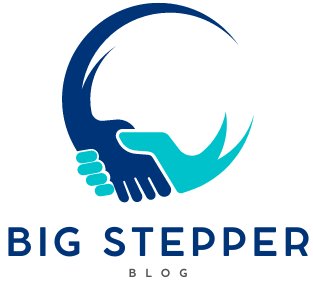Results from a recent study conducted at the University of Reading have shown that Artificial Intelligence can formulate answers in exams, which usually cannot be detected by even experienced human markers, and hence return more favorable grades than responses written by students. This research underlines the requirement for an ambitious review of AI adoption in learning environments worldwide, pushing policymakers and educators to devise robust guidelines and policies which could help them to surmount this emerging challenge. The University of Reading, reputed for being among the first to actively adopt AI use in teaching and assessment, was already quite ahead in addressing the implications of the track these findings have opened up.
The research is led by Associate Professor Peter Scarfe and Professor Etienne Roesch, from the School of Psychology and Clinical Language Sciences, and published in the respected journal PLOS ONE. This is among the largest and most robust tests to date on the ability of this form of AI to penetrate academic assessment systems undetected. The results suggest that, in blind test circumstances Simmons Assignment, 2022, as in genuine university tests, when AI responses for a variety of undergraduate psychology classes, they were only identifiable as machine-generated in 6% of the cases. An additional 100% of those AI-generated responses were consistently given higher average marks than the student responses in every case. Results such as these highlight the potential adverse influence that AI could create in overall academic evaluation integrity and equality.
Dr. Scarfe also commented on the implications of the study for educational practices around the world: “While most institutions have moved away from traditional exams and moved to more inclusive forms of assessment, there is an urgent international need to better understand what AI means in terms of academic integrity.” He pointed to the pressure on educational sectors around the world to evolve continuously in view of new AI technologies and to make sure that assessments maintain their relevance as a measure of student knowledge and capabilities.
Professor Roesch highlighted that it was essential to bring about a proper framework that regulates the morality of AI applications in academic domains and for educators to ponder upon AI’s role in the process of generation and use of information across all spheres. According to him, the responsibility to ensure the quality and integrity of academic work and research does not solely rest upon the institutions but to a large extent on the students who, within an evolving technological environment, are required to meet the standards despite the lack of maturity in handling the novel technologies.
Professor Elizabeth McCrum, Pro-Vice-Chancellor for Education and Student Experience at the University of Reading, discussed how technology will be used to enhance student learning and employability skills. She further cemented her commitment to adopting technology in creating a learner experience tailored to 21st-century workplace requirements, not only in assessment but also with an AI-driven dynamic learning experience across the disciplines.
The University of Reading, for instance, looks into the future and gives a comprehensive inspection of its educational services. The college is well-positioned to devise ways to deal with these challenges in integrating AI. Sharing innovative assessment approaches through interdisciplinary approaches will place institutions at the forefront of empowering students for an AI-driven world, while ensuring the integrity of academic evaluation remains pristine.
So, whereas AI’s ability to outperform human students in academic tests proposes challenges for educators and policymakers, at the same time it could bring unprecedented opportunities to make learning experiences more effective and to prepare students for demands in future careers. While proactive policy development and considerations of ethics should guide the development and use of AI, educational institutions should harness the possibilities to make sure the assessments are fair and credibly related to student achievement in the changing educational landscape.
The implications of AI’s mastery of academic assessments lie far beyond the ordinary technological advancement and delve into deep, profound ethical and social reflections. As AI continues to develop the capacity to emulate human functions in nuanced and context-appropriate responses, issues of fairness, transparency, and educational equity have been elevated. What that means now is many insurers will have to deal with standards to ensure academic integrity is maintained, even as they strive to adopt technological advancements that promise to reshape education as it is known.
What is more, the results of the study stressed a teaching imperative that educators should realign their teaching methodologies with the times in order to equip students with critical thinking, creativity, and problem-solving skills, attributes not creatively reproduced by AI yet. On this note, the cultivation of these distinct features of the human mind by educators will have served the student well to, with confidence and resilience, negotiate this AI-driven environment.
This will entail the drafting of guidelines and policies on the role of AI in education, not only in risk mitigation but also in harnessing such benefits effectively. This is undertaken not only by the identification and evaluation of the AI-generated content but also in the education of the students toward responsible use of AI tools in their work. It is important to focus on building a culture of academic honesty and integrity wherein proactive measures are taken for preventing misuse and thus maintaining the credibility of educational assessments.
Balancing technological innovation with ethics-based actions is going to be the future challenge if educational systems across the world are to maintain trust and accountability. This would require the collaboration of educators, policymakers, and technology developers in order to frame policies that direct responsible AI adoption while protecting the educational experience for all the students.
It is with universities like the University of Reading that debates and activities take shape for the future of education as AI continues to alter form. Provided institutions accept AI as a tool for enhancement and not one of replacement, the future can be one of innovation in teaching and learning practices to trigger the personalization of learning experiences in order to prepare learners for an increasingly fast-changing global economy.
In sum, then, though great challenges may be put before the system by the greater potential of AI to outperform in such assessments, an unprecedented opportunity is also offered to raise educational standards and empower students for success in the digital era. Used responsibly and collaboratively, AI will allow educational stakeholders to align technological change with the very values of fairness, integrity, and excellence in education that help shape a future in which AI is a force for good in education.
Furthermore, there shall be a need for more research and development in the domain of scaling up the use of AI for educational assessments to make it more accurate and reliable along with ethical use.
The branch model will nurture a symbiotic relationship where AI supports the effort of educators to provide students with learning tailored to their needs, with immediate feedback, while educators will be fostering the cognitive and emotional development of students. Embrace this synergy and dynamically cultivate an environment of education where students are not only enabled to learn both knowledge and skills for academic accomplishments but to become lifelong learners and to adapt to the dynamically AI-infused world. Embracing and embedding AI in education has to be a forward-looking process focused on issues of the place of AI in relation to ethics, its role in serving education equitably, and enhancing learning experiences. In so doing, universities and schools, through collaborative discussion and proactive engagement with AI technologies, will take off in making this a reality—a future in which AI becomes a transformational force in education, serving to enhance the teaching practices that foster student success in an intensively changing global landscape.

